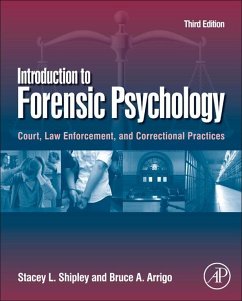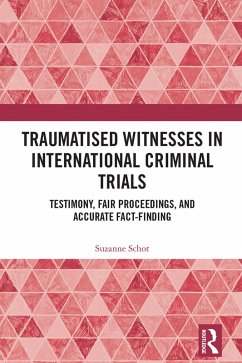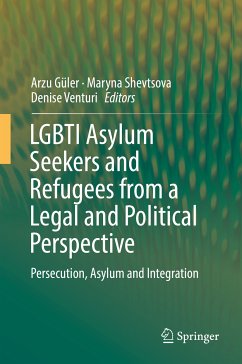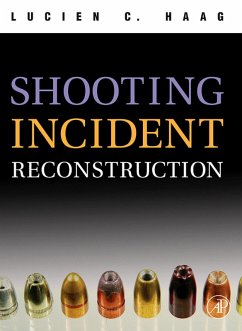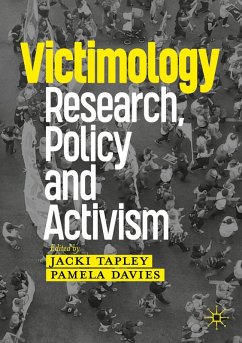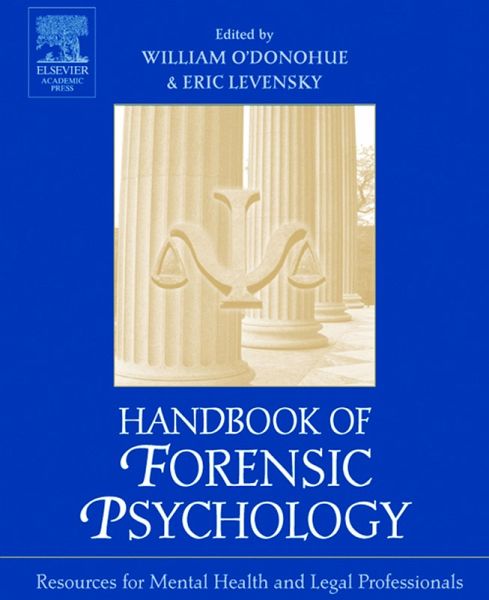
Handbook of Forensic Psychology (eBook, PDF)
Resource for Mental Health and Legal Professionals
Redaktion: O'Donohue, William; Levensky, Eric R.

PAYBACK Punkte
66 °P sammeln!
Forensic psychology has mushroomed into a diverse and increasingly complex field that is equal parts law and psychology. Psychologists act as expert witnesses in legal cases - sometimes without knowing much about the laws involved, and legal professionals rely on the assessment of psychologists sometimes without knowing much about how such assessments are made. The purpose of this handbook is to provide professionals with current, practical, and empirically based information to guide their work in forensic settings, or to better their understanding of the issues and debates in forensic psychol...
Forensic psychology has mushroomed into a diverse and increasingly complex field that is equal parts law and psychology. Psychologists act as expert witnesses in legal cases - sometimes without knowing much about the laws involved, and legal professionals rely on the assessment of psychologists sometimes without knowing much about how such assessments are made. The purpose of this handbook is to provide professionals with current, practical, and empirically based information to guide their work in forensic settings, or to better their understanding of the issues and debates in forensic psychology.Divided into four sections, the Handbook of Forensic Psychology covers basic issues, assessment, mental disorders and forensic psychology, and special topics. The basic issue chapters present a primer on law for the psychologist, a primer on psychology for attorneys, an overview of ethical issues relevant to forensic psychology, and a chapter on forensic report writing. The assessment section discusses factors and measures relevant for assessing a variety of behaviors, propensities, and capabilities, including dangerousness, violence, suicide, competency, substance abuse, PTSD and neuropsychological evaluations, as well as discussing interviewing children and child custody evaluations. Additional chapters discuss eyewitness testimony, recovered memory, polygraphs, sexual harassment, juror selection, and issues of ethnicity in forensic psychology.
Dieser Download kann aus rechtlichen Gründen nur mit Rechnungsadresse in A, B, BG, CY, CZ, D, DK, EW, E, FIN, F, GR, HR, H, IRL, I, LT, L, LR, M, NL, PL, P, R, S, SLO, SK ausgeliefert werden.





